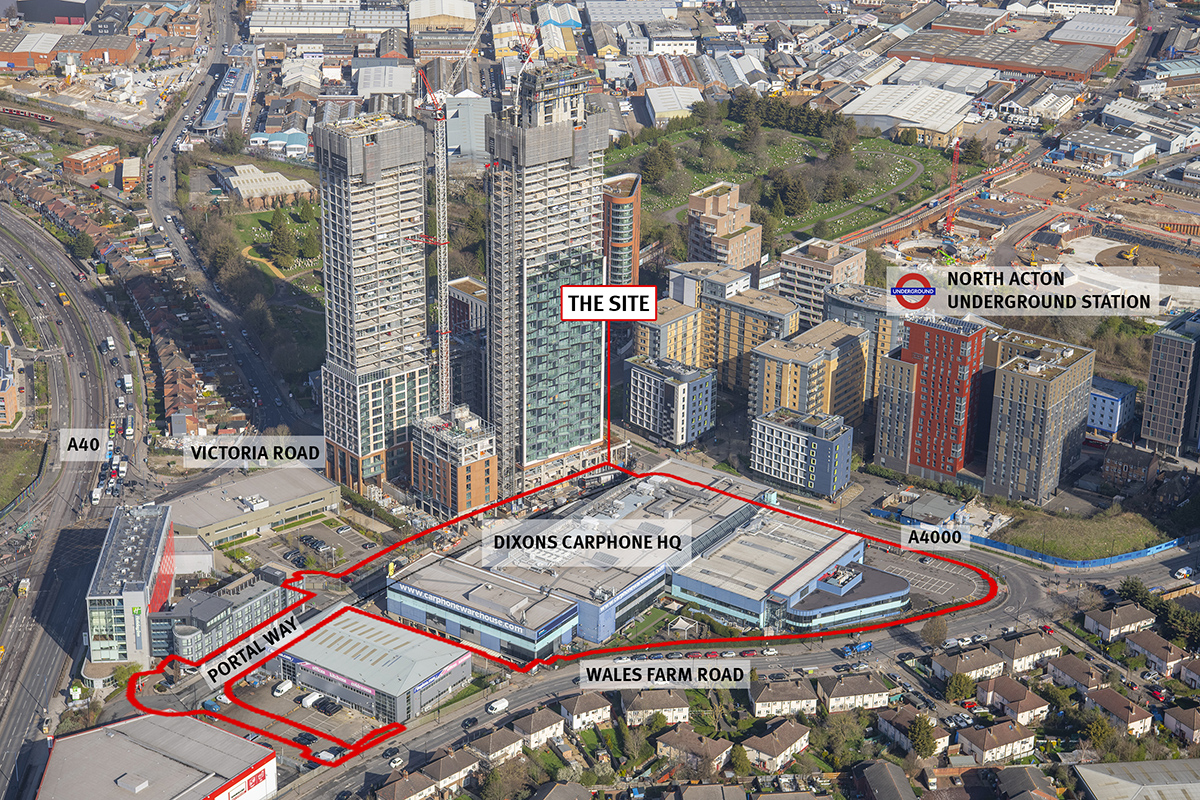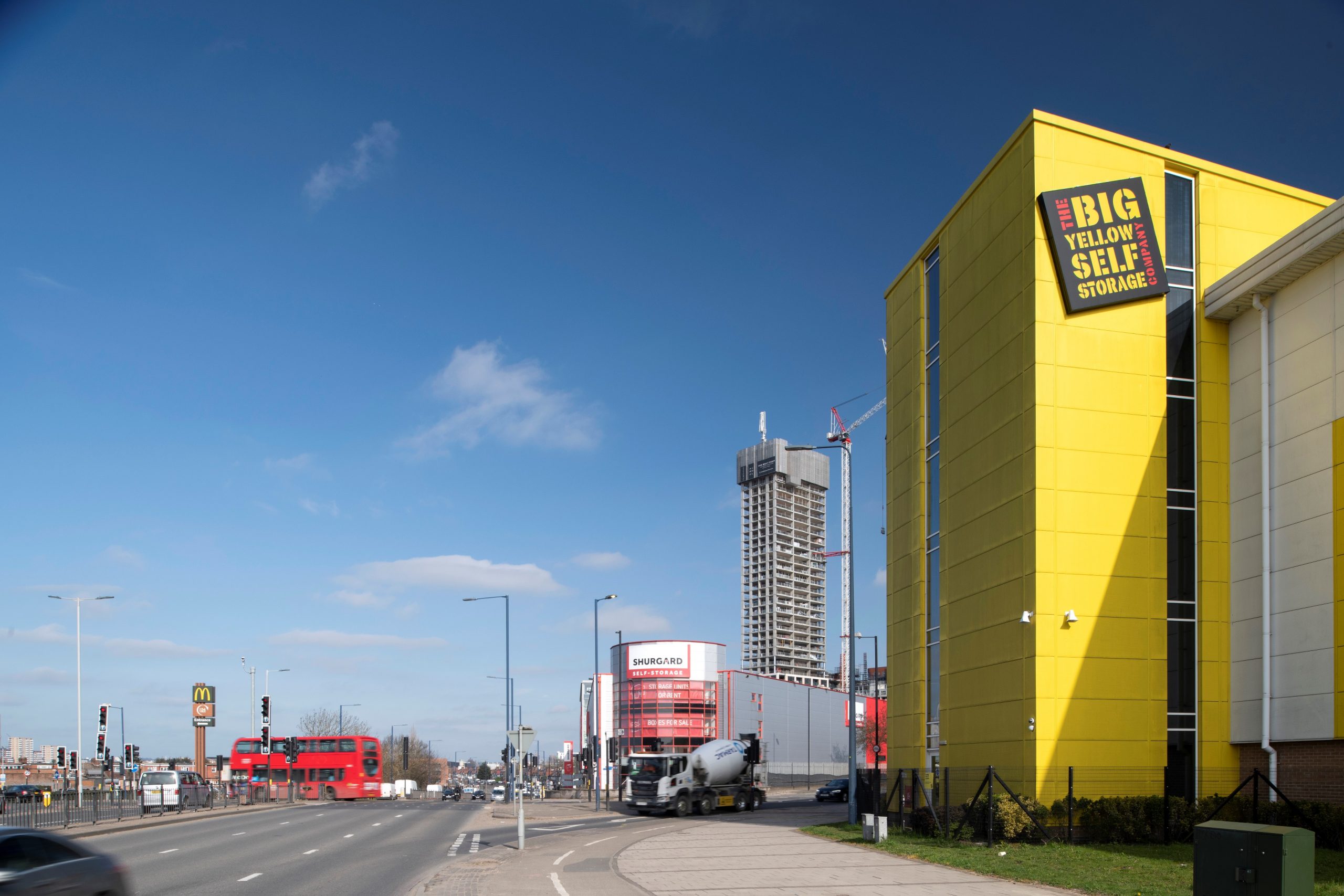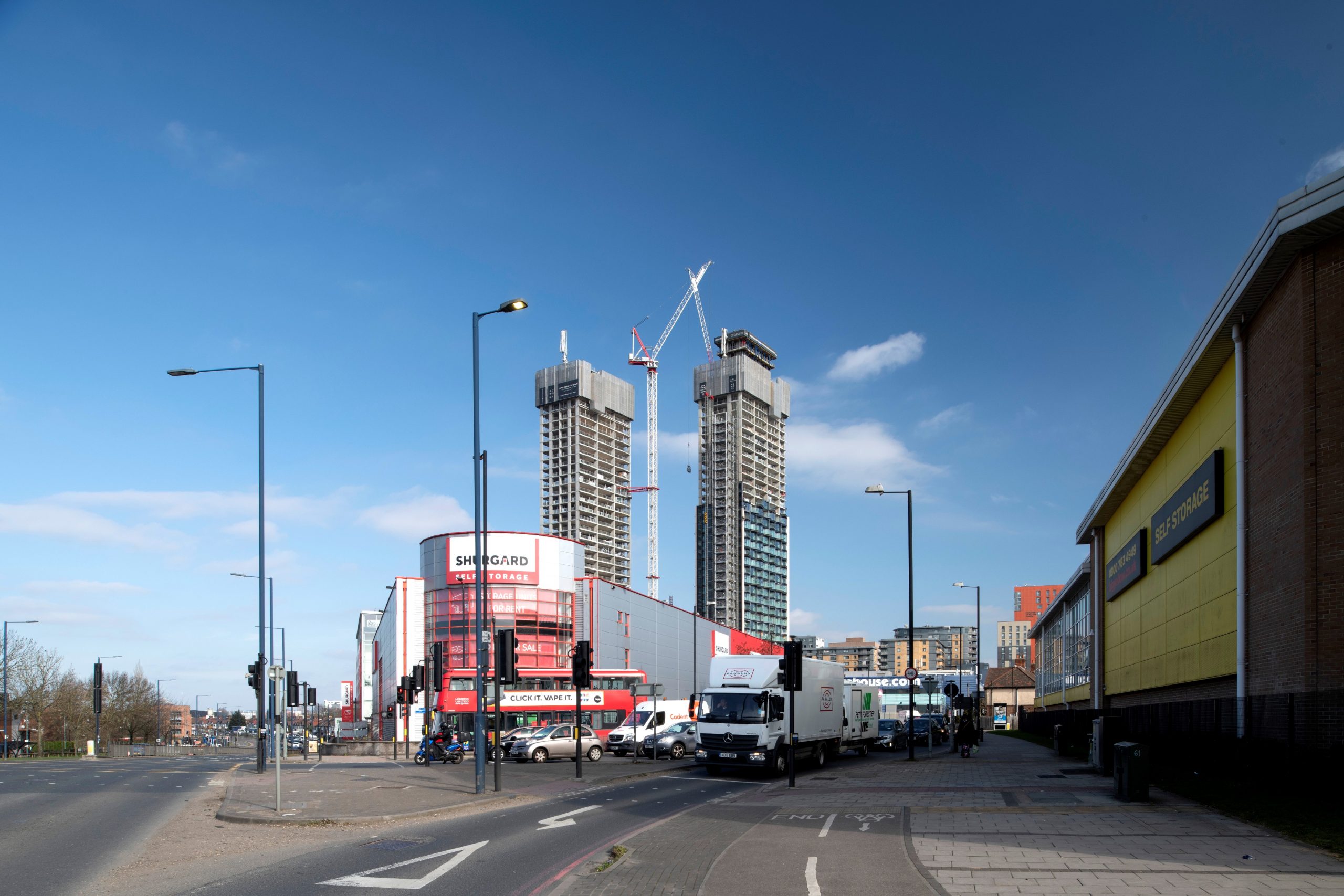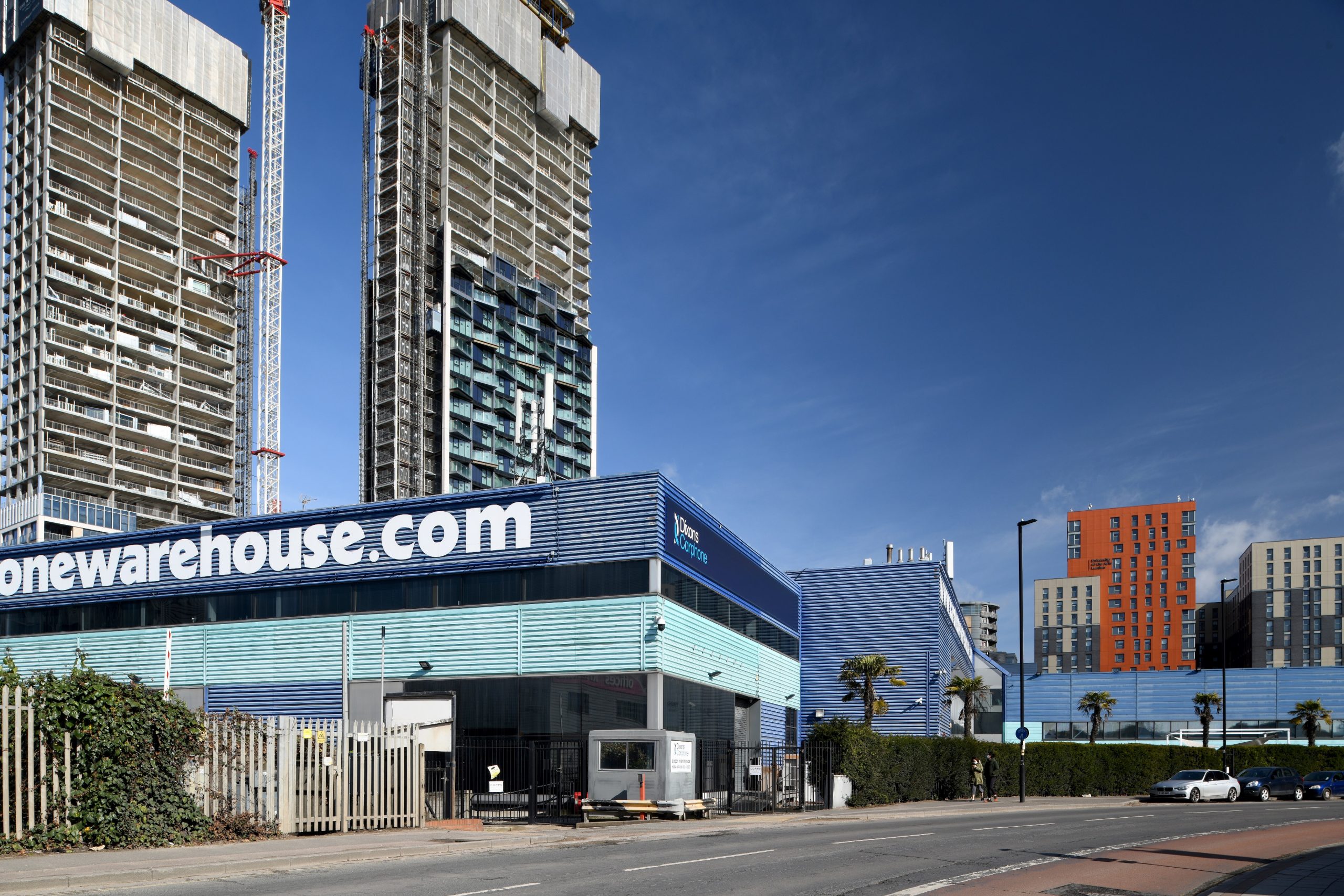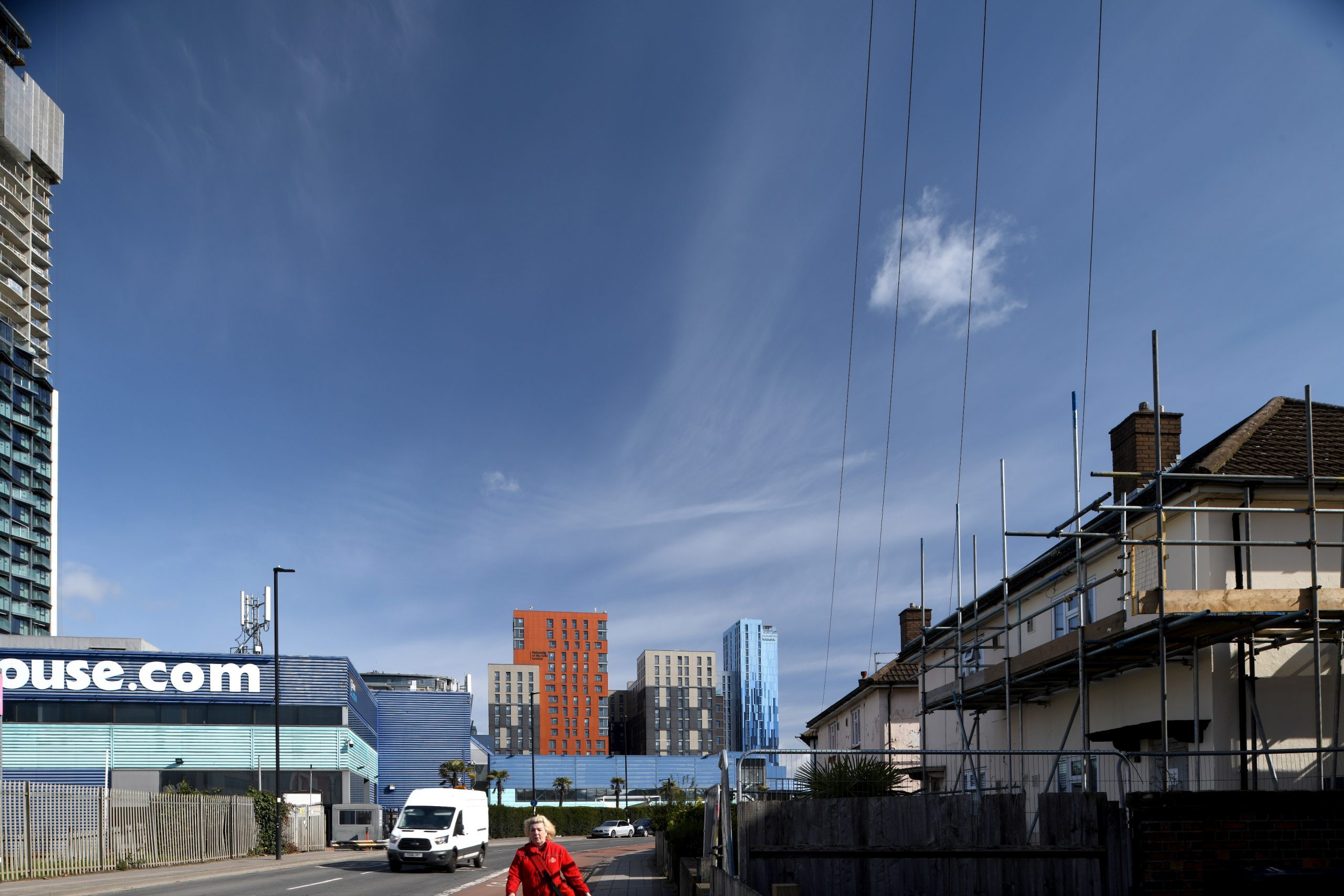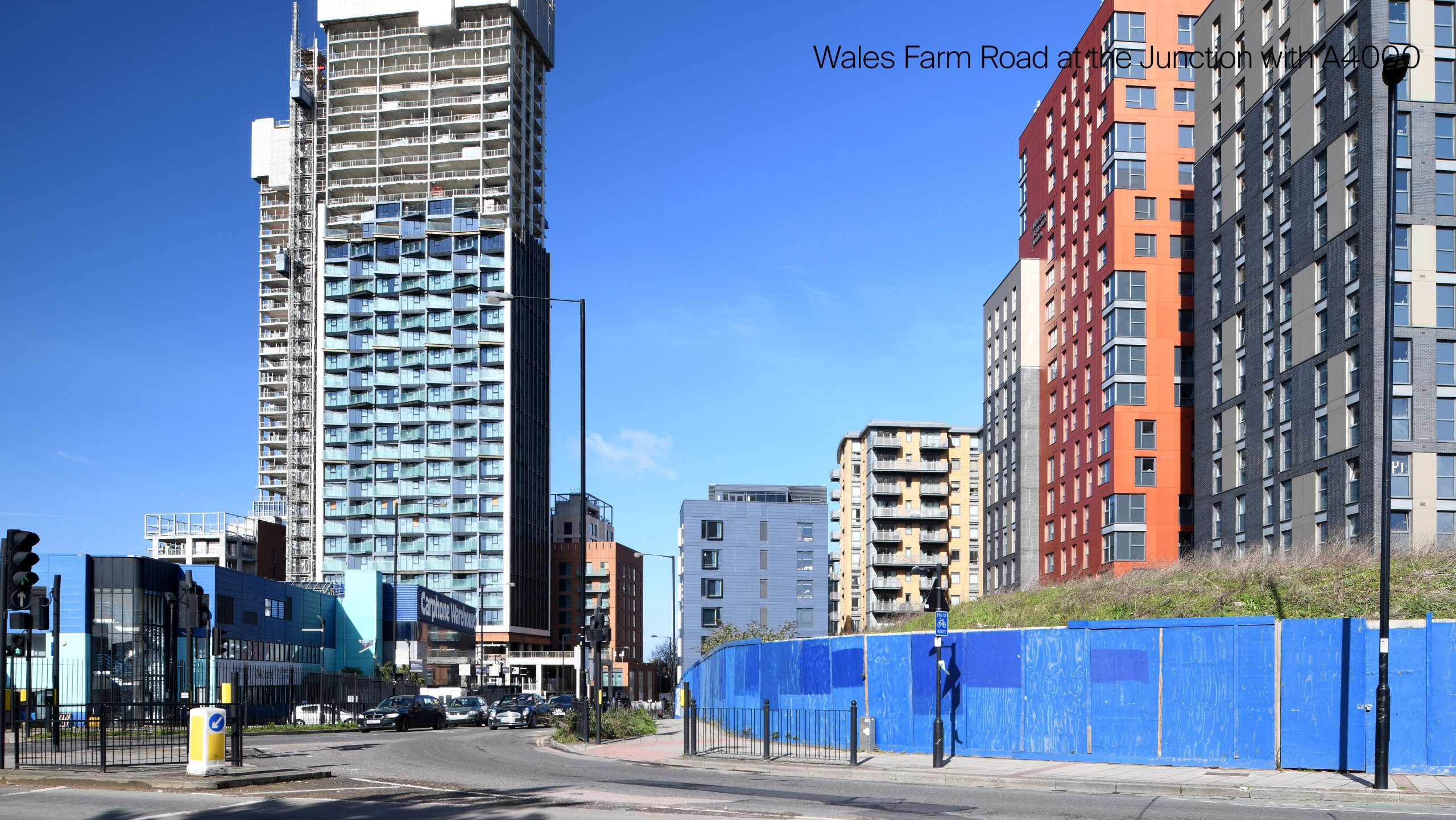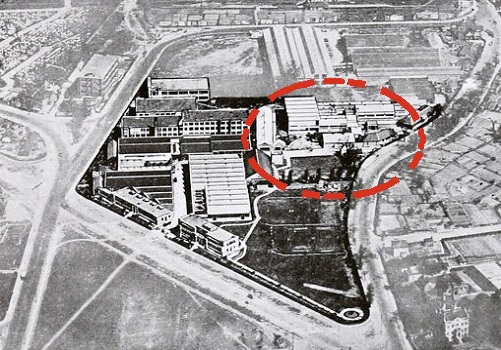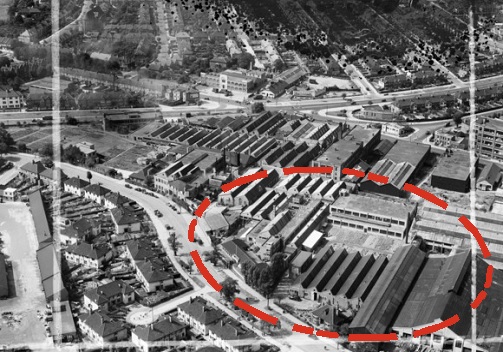The Site and History
The site sits within Park Royal, the largest industrial area in London, and the OPDC, the largest regeneration area in Europe.
The site is bordered by Portal Way to the West, A4000 to the North and Wales Farm Road to the East.
It is currently occupied by Dixons Carphone, and is inaccessible to the public. It is surrounded by security features, railings, parking and vehicle access points, offering little to passers-by or the local community.
The site has an existing planning consent for a new 32 storey residential building, granted in 2016, however the area has changed a lot in the last five years and Imperial is considering new development proposals to better reflect the current and future needs of Ealing, North Acton and local people.
In March 2022 Currys (formerly Dixons Carphone) announced their decision to relocate to significantly smaller flexible offices elsewhere. We understand this follows a staff consultation and a move to hybrid working on a permanent basis. They have therefore decided they no longer require the offices at One Portal Way. As the landlord, we are committed to working with Currys to help secure a meanwhile occupier to provide jobs and growth for the area and the Borough.
Imperial have selected renowned architects Pilbrow & Partners to develop and create a new vision for the site.
Site History
With its excellent road, rail, and canal links, Park Royal was developed for industrial use, mainly during the 1930s. From 1950 the outward expansion of London meant the village communities on the fringe of Park Royal began to merge into Greater London.
By the 1970s Park Royal had become a thriving industrial estate and home to leading manufacturers. In particular, the area was known for the manufacture of telephone equipment, due to the presence of the telecoms manufacturer S.G. Brown.
In the late 20th Century Park Royal continued to build on its reputation to become Europe’s largest industrial estate, accommodating a range of industries including manufacturing, distribution, and TV/film.
Today Park Royal accommodates a broad range of industries, and it is the major food production quarter of London. The Park Royal Atlas study (June 2018) has found that 75% of businesses are small workplaces. The 1% of workplaces that are large businesses includes a number of large food manufacturers like Bakkavor, a ready meal manufacturer, and several industrial bakeries like McVitie’s, perhaps the largest household name to be based in Park Royal.
